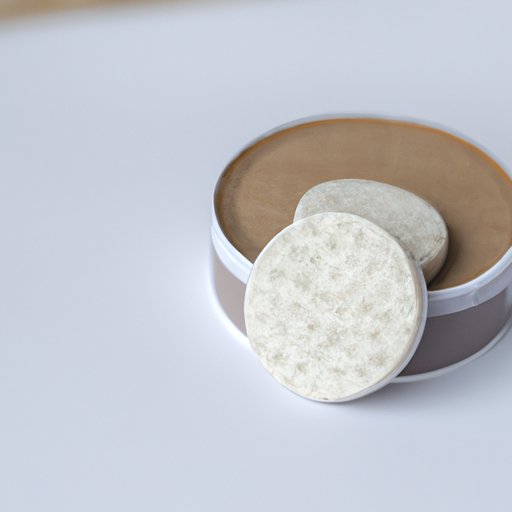
I. Introduction
Cold sores, also known as fever blisters, are a common problem that affects people all around the world. They are caused by the herpes simplex virus and can be unsightly, uncomfortable, and embarrassing. While cold sores usually heal on their own within a week or two, many people prefer to find ways to speed up the healing process and prevent future outbreaks. In this article, we will explore several natural remedies, lifestyle changes, over-the-counter medicines, prescription medicines, and home remedies that can help combat cold sores.
II. Natural Remedies
There are several natural remedies that can help combat cold sores:
- Pure Aloe Vera: its soothing properties can help to reduce inflammation and promote healing. Apply a small amount of pure aloe vera gel directly to the sore and leave it on for several minutes before rinsing it off with warm water. Repeat this process several times a day until the sore has healed.
- Tea Tree Oil: can help to reduce the severity and duration of cold sore outbreaks. Dilute a few drops of tea tree oil in a carrier oil, such as coconut oil, and apply the mixture to the sore using a cotton swab. Repeat this process several times a day until the sore has healed.
- Lemon Balm: contains antiviral compounds that can help to speed up healing. Crush a handful of fresh lemon balm leaves and apply the juice to the sore using a cotton swab. Repeat this process several times a day until the sore has healed.
- Echinacea: can help to support the immune system and reduce the frequency of outbreaks. Drink echinacea tea or take echinacea supplements daily to help prevent cold sores from appearing.
To use these remedies effectively, it’s important to start using them as soon as you feel a cold sore coming on. Apply the remedy frequently and be patient, as it may take several days for the sore to heal completely.
III. Lifestyle Changes
There are several lifestyle changes that can help prevent cold sores from occurring:
- Reducing Stress Levels: stress is a common trigger for cold sores, so finding ways to manage stress is important. Try practicing stress-reducing techniques, such as yoga, meditation, or deep breathing exercises.
- Using Sunscreen: exposure to sunlight can trigger outbreaks, so using sunscreen can help prevent this. Be sure to apply sunscreen with an SPF of 30 or higher before going outside.
- Eating a Healthy Diet: maintaining a balanced diet can help support immune function and reduce the frequency of outbreaks. Eat plenty of fruits, vegetables, whole grains, and lean proteins.
To incorporate these changes into daily life, try setting realistic goals and making small changes over time. For example, try taking a short yoga class once a week or packing a healthy lunch to bring to work.
IV. Over-the-Counter Medicines
There are various over-the-counter treatments for cold sores:
- Creams, Ointments, and Topical Gels: can help to relieve pain and promote healing. Look for products that contain ingredients such as benzyl alcohol, lidocaine, or docosanol.
When using over-the-counter medicines, be sure to follow the instructions carefully and use them as soon as you feel a cold sore coming on.
V. Prescription Medicines
For severe cold sore outbreaks, prescription medications may be necessary:
- Antiviral Pills: can help to reduce the severity and duration of cold sore outbreaks. These medications are available by prescription only, so be sure to consult a healthcare provider before starting a new medication.
It’s important to seek medical advice before starting a new medication, as some medications may have side effects or interact with other medications.
VI. Home Remedies
There are several traditional and alternative home remedies for cold sores:
- Placing a Damp Teabag on the Sore: can help to reduce inflammation and promote healing. Place a damp teabag on the sore for several minutes, several times a day.
- Applying a Baking Soda, Salt, and Water Paste to the Affected Area: can help to dry out the sore and promote healing. Mix equal parts baking soda and salt with a small amount of water to form a paste, and apply it directly to the sore. Leave the paste on for several minutes before rinsing it off with warm water.
When using home remedies, be sure to use caution and stop using them if they cause any discomfort or irritation.
VII. Conclusion
Cold sores can be a frustrating and embarrassing problem, but there are many remedies and strategies that can help combat them. Try incorporating some of the tips and remedies we’ve discussed into your daily routine and see what works best for you. With a little patience and persistence, you can find relief from cold sores and prevent future outbreaks.





